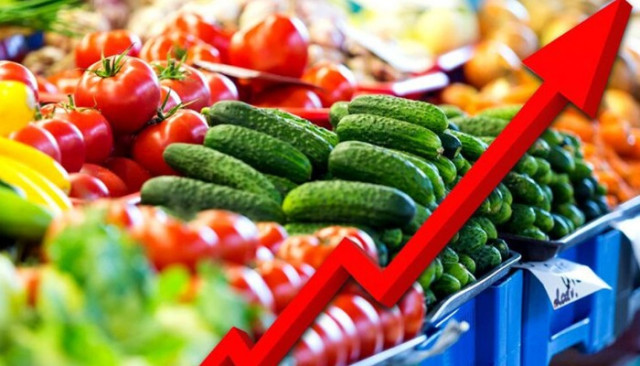The 36 state governors have come together to collaborate with the Federal Government on harmonizing levies, removing illegal checkpoints, and improving the movement of goods between states, all part of efforts aimed at addressing food security challenges nationwide.
This development follows comments from Hope Uzodimma, Chairman of the All Progressives Congress Governors Forum and Governor of Imo State, who emphasized the urgent need for a state-level security system to complement federal initiatives, as agreed upon by both the Progressive Governors Forum and the Nigeria Governors’ Forum.
Food inflation continues to impact household budgets across Nigeria, despite a technical reduction in the year-on-year national average, which was recorded at 21.14% in May, a significant drop from 40.66% in May 2024, largely influenced by a change in the base year affecting year-on-year comparisons.
Notably, the month-on-month rate slightly increased to 2.19% from April’s 2.06%, reflecting ongoing price pressures in certain food categories. At the sub-national level, numerous states are experiencing sharp rises in food prices.
Particularly concerning is that many of those states with the highest food inflation are also significant producers of food crops, demonstrating a disconnect between local production and affordability.
While food inflation at the national level seems to be easing due to statistical base effects, real-time price pressures are intensifying in several states. Key drivers of food inflation throughout Nigeria include supply disruptions, insecurity, and elevated transportation costs.
The National Bureau of Statistics indicates that prices for staple foods such as yam, pepper, cassava, and maize remain high, with variation in pressures across different regions.
During a meeting with the National Security Adviser Nuhu Ribadu and other stakeholders, the governors, under the Nigeria Governors Forum led by Kwara State Governor AbdulRahman AbdulRazaq, identified widespread checkpoints, unauthorized levies, and poor infrastructure as significant contributors to food price inflation and disruptions in the food supply chain.
In a communiqué presented by Lagos State Governor Babajide Sanwo-Olu, the NGF expressed dissatisfaction with the World Bank’s failure to fulfill its funding commitments under the Nigeria Community Action Recovery and Economic Stimulus (NG-CARES) programme.
He highlighted the presentation from the National Security Adviser, which detailed the rising costs of food and livestock transportation across the country.
The NSA's presentation indicated that the proliferation of checkpoints, illegal taxes, and insufficient infrastructure heavily contribute to price inflation and inefficiencies in the food supply chain.
Acknowledging the urgency of the situation, the governors committed to collaborating with federal authorities to streamline levies, eliminate unlawful checkpoints, and enhance the movement of goods.
Governor Sanwo-Olu reported that states had together invested more than US$2.2 billion through NG-CARES implementation platforms. The communiqué further stated that the World Bank presented updates on the NG-CARES programme, noting significant state investments totaling over US$2.2 billion, benefiting more than 17 million direct beneficiaries.
The governors expressed concern regarding the World Bank's failure to meet its funding promises under NG-CARES 1.0, emphasizing the need for a resolution between the Bank and participating states to conclude the initial phase before progressing to NG-CARES 2.0, aimed at building long-term resilience for vulnerable households and businesses.
In a social media post, Governor Uzodimma remarked that while they await additional security measures from the President, they remain committed to taking lawful action to ensure the safety of Nigerians.
The situation of insecurity has worsened across Nigeria, leading to numerous fatalities and displacements, such as the recent attack in Yelewata, Benue State, where about 200 villagers were reportedly killed on June 13, resulting in nationwide outcry and concern. President Bola Tinubu visited the state to address the issue and ordered the apprehension of those responsible for the violence.
Following discussions among the Progressive Governors and the Nigeria Governors’ Forum in Abuja, Uzodimma reiterated their firm commitment, stating that serving the people remains their highest priority.
He added, "Regarding national security, the Progressive Governors’ Forum (PGF) and the Nigeria Governors’ Forum (NGF) have agreed to support President Bola Ahmed Tinubu’s model to empower states and communities in addressing ongoing security challenges.
Our discussions yesterday, following the President's visit to Benue State, revealed a consensus on the immediate need for a state security system to complement federal efforts. In Imo State, we have proactively adopted this model, implemented across our communities, resulting in measurable progress in tackling security threats and restoring citizens' confidence.
Our efforts continue to be strengthened through intelligence gathering, community engagement, and lawful enforcement strategies. While we await further Presidential security measures, we are dedicated to doing everything possible, within legal bounds, to protect our citizens’ lives and properties. Our resolve is firm, and serving the people remains our highest duty."




















